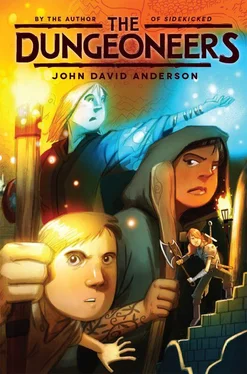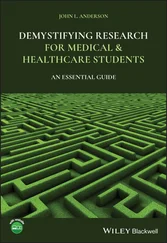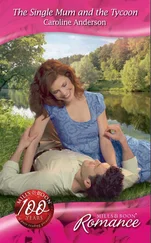It was the same conversation as the week before, except then, instead of sugar, it was soap. And butter the week before that. There was always something they wanted and couldn’t have. Beside him, Colm’s sister shuddered. Her nearly strawberry-colored hair fell down the back of her nightgown, chaotically curled. During the day she always wore it up, bundled and tacked into place with her favorite silver butterfly pin, the only thing she owned of any real value. Celia was a firebrand, with a temper that didn’t seem to come from either side of the family, and she was often the one found stranded in a tree that she was skilled enough to climb into but not out of, or torturing the chickens by chasing after them. She was once caught putting rotten eggs in the toes of everyone’s shoes. Of all his sisters, Colm liked Celia best.
Celia turned and whispered to him, “I’m not going near any bees.” Colm shushed her. She was so good at getting into trouble; she needed to learn better how to stay out of it.
“I just don’t see how we will make it work.” Colm’s father sighed. “There are only so many feet in the world, Mina. And each of ’em only ever wears one shoe at a time.”
“Then people will just have to start having more children so that you can shoe more feet,” Colm’s mother said brightly. Somehow his mother’s voice was always cheerful, even when discussing dire subjects. Colm heard her drag the weary cobbler out of his chair, telling him there was nothing to be done about it tonight. Colm listened for their door, then turned and slumped against his own.
“It’s not that I’m afraid,” Celia said, slouching beside him. “I just don’t like getting stung, is all.”
“No. You’re not afraid of anything,” Colm teased her.
“I’m not afraid of you ,” she said, punching him in the arm. Then she gave him a fierce hug and slipped out of his room.
It didn’t pay to fret, but on nights like these, Colm couldn’t help but lie stretched out in his hammock and think about how unfair it was that there were nobles born with purses already in their fists, swaddled in fine silks and never needing to work in their whole life, while his father grew calluses on top of calluses mending shoes, hoping for a tip that didn’t come as often as it should. Colm lay back and imagined a world where you didn’t have to scrabble for every last coin. Where you could just take whatever you wanted whenever you wanted, without anyone the wiser.
He knew it was possible. There were tavern tales — though to Colm they sounded more like myths — of men and women, warriors, gallant knights, and studied wizards, who ventured far into the unmapped wilderness, into the caverns and hollows leading deep beneath the ground, to vast subterranean passageways riddled with no end of vile and nasty creatures — goblins and ogres and spiders so big they bit your head off to feed to their young and wrapped your body in silk for leftovers. Trolls and giants and wolves and dragons and warlocks and hundreds of other foul fiends that might give a grown man nightmares, all lurking in endless corridors capped with enchanted doors. A host of unspeakable horrors, all guarding the same thing.
Treasure.
Endless treasure. Gobs of it. Heaps of it. Silver and gold and gemstones that had never seen the light of day, mined and hoarded, kept in chests stacked twenty high. Colm had heard several stories of poor sots who ventured into dark and dangerous places and came back rich as lords.
Or didn’t come back at all.
But to Colm, they were just stories. He had never met anyone who had even seen a goblin, let alone stolen its gold. Such places were far from Felhaven, some of them across mountain ranges or vast oceans, nearly impossible to reach. There was no fabled treasure to be had here, unless you counted the collection of worn stones that Elmira insisted could grant wishes. Once, several years ago, when he was first learning to help his father, a man had come in with a pair of well-worn boots in sore need of repair. He looked much like the characters described in Colm’s stories, from the scabbarded sword to the scabbed knuckles and the sack thick with coin that he used to pay in advance. Colm was certain this man had seen the kinds of things he had only read about, but before he could ask, Rove Candorly had sent his son back to the house on some trivial errand. By the time Colm returned, the man was gone.
No, there was no hope of finding adventure here. There were no dungeons near Felhaven, not that he was aware of, anyways. There was no fabled treasure, only farmlands.
But there was money.
After all, not everyone had eleven mouths to feed. Some people only had the one, and had more than enough to feed it with. There were still lords and ladies in town with fat velvet purses, bags bursting with silver, dripping from belts like ripe apples. Gentlemen with billowing satin pants and pockets plump with gold. Girls with pearl necklaces too tight to be comfortable. He had seen fine gentlemen reach into silk bags so heavy they could barely hold them, just to give his father a single coin for a half day’s work. Sometimes it just didn’t seem fair how much of it was out there, sitting in pockets, gathering lint.
If only you could get it.
From the room next door, he heard one of his older sisters cough.
Seysha was sick.
She was the one heard coughing in the night. By morning she was shivering and sweating both. Mina sent the older set of twins to fetch Felhaven’s resident healer, while Colm stood by Seysha’s bed with the rest of the family.
It wasn’t the first time. Seysha was one of the triplets — the second to emerge — and thus one of the three who suffered the most from strange illnesses. The rest of the Candorly clan was hardy as hickory, but the three oldest sisters were waifs. Skinny even by Candorly standards, and pale, hair more their father’s tarnished gold than their mother’s fiery red. It was inevitable that every few months or so, one of them would fall victim to some infection and be bedridden for a week.
The healer would visit, trailing her wooden cart of unguents and herbs — garlic and ginger root and witch hazel and others with more potent properties whose names she never said. She would chant and blow smoke and generally fill the house with a noxious fog, and then she would give Colm’s parents a jar of paste or a bottle of some black stuff the consistency of pudding and charge them a pocketful of silver. The old crone was no wizard — not that Colm knew what one of those looked like either — though her potions and poultices were worth the steep price.
It took most of the morning to find her. But hardly any time at all for her to work her own special kind of magic. Seysha would be fine, the healer said after she’d finished rubbing her chest and neck with some oily liniment and placed a cool cloth on her head. The medicine should be enough, but it was possible she might need more, that the illness could linger. Or that she might need something even stronger (meaning, Colm knew, even more expensive).
Colm saw the look in his father’s eyes: relief that his daughter’s ragged breathing had steadied, but soon replaced with other concerns. The money he paid for that little bottle of glurpy syrup could have fed the lot of them for a week. Rove Candorly paid the healer out of last night’s meager stack, then kissed his daughter’s forehead and ran all ten fingers through his bushel of hair. “I guess I’ll be in the workshop,” he said, and turned to leave.
Colm stood between his mother and oldest sister. He listened to his father slam the back door and head out to the barn. He would work until his eyes failed him and he started hammering his own fingernails. He would probably ask for Colm’s help at some point, but maybe not. Rove Candorly was a proud man. He could handle any hardship. He would work clear through the night, mending every boot still sitting on the bench. Then he would travel into town to drum up even more business, pointing to floppy soles and busted stitching, offering a discount and promising a one-day turnaround. Colm had seen it before.
Читать дальше












